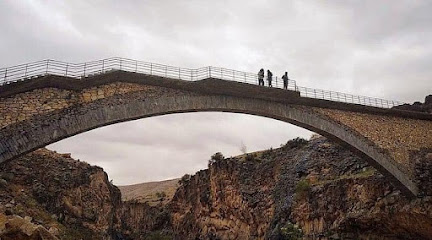
Discover the Ancient Ruins of Khirbet Al-Dharieh
Explore Khirbet Al-Dharieh, an ancient Nabatean temple in southern Jordan, where history meets breathtaking landscapes.
Khirbet Al-Dharieh, a remarkable historical landmark in southern Jordan, is a treasure trove for history enthusiasts and curious travelers alike. This ancient site features the stunning remains of a Nabatean temple, showcasing the architectural prowess of the Nabateans who once thrived in this region. Visitors can immerse themselves in the rich history and breathtaking landscapes that surround this cultural gem.
A brief summary to Khirbet Al-Dharieh
- 35, JO
Local tips
- Visit early in the morning or late afternoon to avoid the heat and enjoy the soft natural light for photography.
- Wear comfortable walking shoes, as the terrain can be uneven and requires some exploration.
- Bring water and snacks, as amenities are limited in the area surrounding the site.
- Consider hiring a local guide to enrich your understanding of the site's historical context.
- Respect the site by not climbing on the ruins and following local guidelines for preservation.
Getting There
-
Car
If you are driving from Tafileh, head southeast on the main road (King Abdullah II St) towards the Tafila Highlands. Continue for approximately 15 kilometers until you reach the sign for Khirbet Al-Dharieh. Turn left onto the dirt road and follow it for about 2 kilometers. You will see signs directing you to the site. Make sure to have a GPS or a map handy as the dirt road can be tricky.
-
Public Transportation
To reach Khirbet Al-Dharieh via public transportation, take a bus from Tafileh city center heading towards the nearby village of Qadisiyah. Buses typically leave every hour. Once you arrive in Qadisiyah, you will need to hire a local taxi to take you the remaining 5 kilometers to the site. Make sure to negotiate the fare beforehand, which typically should not exceed 5 Jordanian Dinars. Confirm with the taxi driver that they know the location of Khirbet Al-Dharieh.
-
Walking
For the adventurous traveler, if you are already near the site and wish to walk, start from Tafileh city center and head south towards the hills. The walk is approximately 7 kilometers and will take around 1.5 to 2 hours. Follow the dirt paths that lead up the hill, which are usually well-trodden by local farmers. Keep an eye out for signs or locals to ask for directions once you're closer to the area.
Discover more about Khirbet Al-Dharieh
Iconic landmarks you can’t miss
Khirbet Al-Dharieh
0.0 km
Explore Khirbet Al-Dharieh, an ancient Nabatean temple in southern Jordan, where history meets breathtaking landscapes.
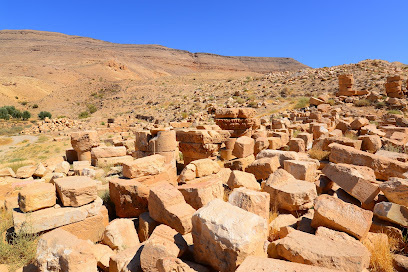
Wadi al Hasa
3.3 km
Explore the enchanting Wadi al Hasa in Jordan, a natural paradise with stunning landscapes, diverse wildlife, and rich history for nature lovers and adventurers alike.
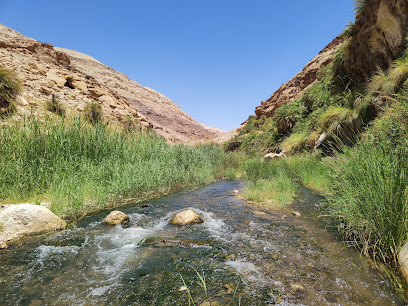
Khirbet et-Tannur
6.8 km
Explore Khirbet et-Tannur, an archaeological marvel in Jordan that reveals the secrets of ancient civilizations amidst breathtaking landscapes.
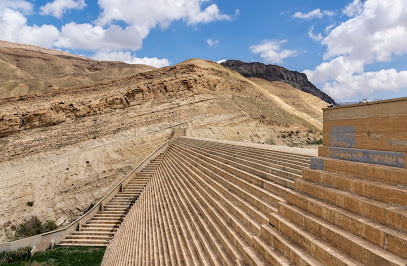
Jordan Tours' Guide
10.4 km
Explore Jordan's breathtaking landscapes and rich history with Jordan Tours' Guide, your ultimate partner for unforgettable outdoor adventures.

Tour drivers Dana Biosphere Reserve & Feynan
11.7 km
Discover the breathtaking landscapes and rich biodiversity of Dana Biosphere Reserve & Feynan, a must-visit eco-destination in Jordan.
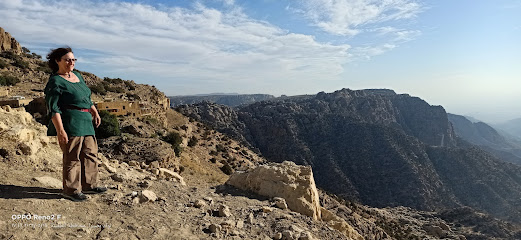
قلعة الطفيلة
12.2 km
Explore the historical wonders of Qala'at at-Tafilah, a captivating fortress in Jordan offering stunning views and rich cultural heritage.
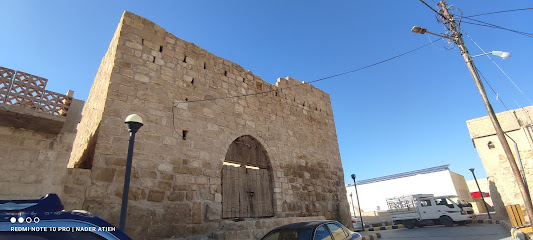
قرية صنفحة التراثية
15.0 km
Experience the enchanting historical village of Sufah in At-Tafilah, where Jordan's rich heritage and serene landscapes await your discovery.
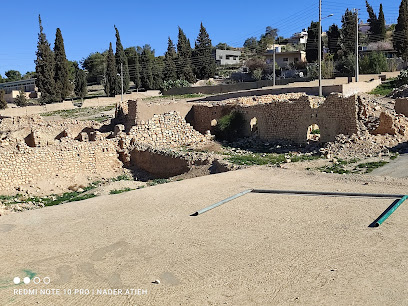
Stele from king Nabonidus of Babylonia
18.4 km
Explore the Stele of King Nabonidus in At-Tafilah, a captivating historical landmark that unveils the mysteries of ancient Babylonian civilization.
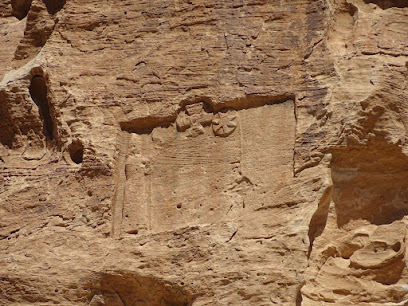
Busayra
20.4 km
Discover the historical allure of Busayra, a remarkable landmark in At-Tafilah, where ancient architecture meets breathtaking landscapes.
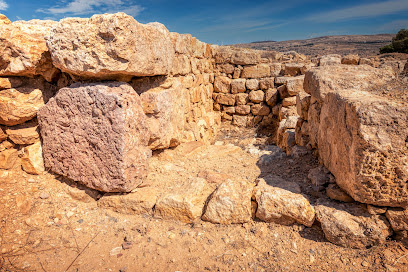
Ghor Al-Safi Sugar Mills
25.1 km
Discover the historical significance and natural beauty of Ghor Al-Safi Sugar Mills, a landmark that embodies Jordan's agricultural heritage.
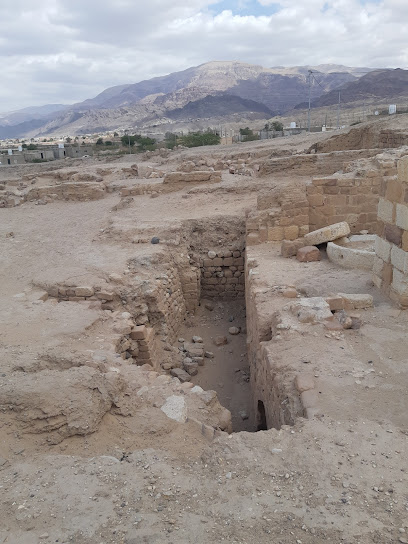
Edge of the world
25.7 km
Experience the breathtaking views at the Edge of the World, a scenic rest stop in Dana that captures the essence of Jordan's natural beauty.
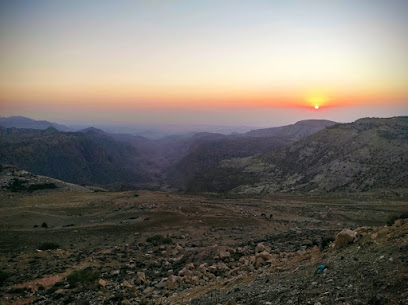
Qasr el-Juwein
25.9 km
Explore the rich history and stunning architecture of Qasr el-Juwein, a key landmark in Kerak, Jordan, perfect for history lovers and adventurers alike.
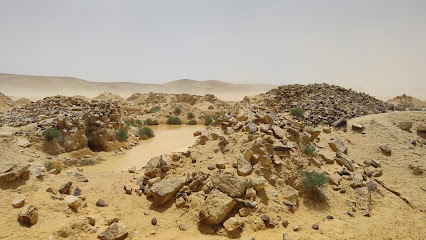
Dana Reserve
26.1 km
Explore the breathtaking landscapes and rich biodiversity of Dana Reserve, a gem in Jordan's natural heritage.
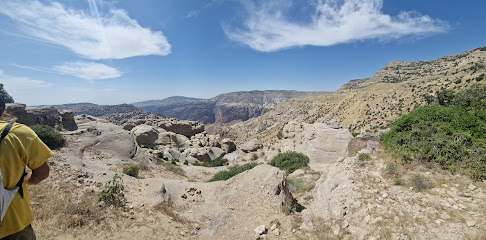
Dana Biosphere view
26.3 km
Experience the breathtaking Dana Biosphere View, a haven for hikers and nature lovers in Jordan, showcasing stunning landscapes and rich biodiversity.

White Dome Trail
27.0 km
Discover the breathtaking beauty of the White Dome Trail in Dana, Jordan, a must-visit hiking area blending natural wonders and rich cultural heritage.
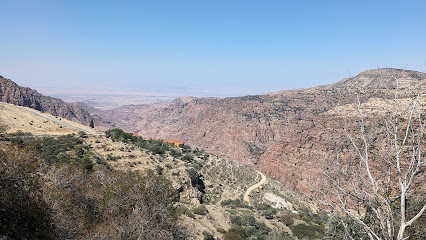
Unmissable attractions to see
مزرعة الشيخ خليل الزحيمات
5.1 km
Experience the serene beauty and vibrant flora at Mzra'at Al-Sheikh Khalil, an enchanting garden in At-Tafilah, Jordan.

Al-Quran Farm
6.9 km
Discover the tranquil beauty of Al-Quran Farm, a serene park in At-Tafilah, perfect for relaxation and nature exploration.

Upper Wadi Al-Hasa trail
8.6 km
Discover the breathtaking beauty of Upper Wadi Al-Hasa trail, a hiker's paradise in Jordan, featuring stunning landscapes and rich biodiversity.
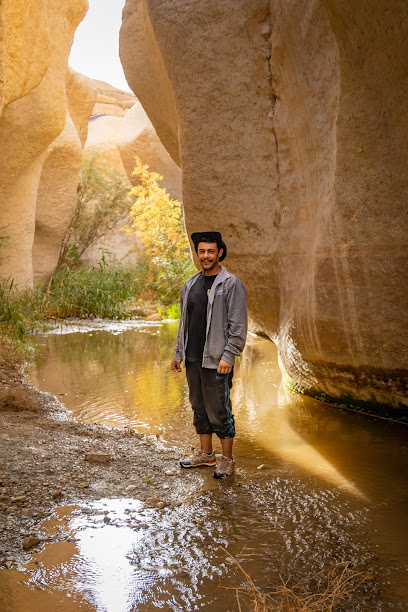
مخيم وادي الحسا السياحي wadi al hassa camp
8.6 km
Experience the serene beauty of Wadi Al Hassa Camp, a perfect blend of nature, adventure, and family-friendly activities in Jordan.
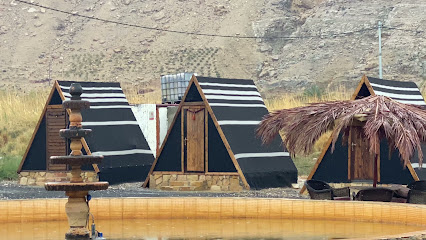
حمامات عفرا Afra Mineral Hot Springs (Spa)
8.9 km
Discover rejuvenation at Afra Mineral Hot Springs – a tranquil spa experience in the heart of Jordan's stunning landscapes.
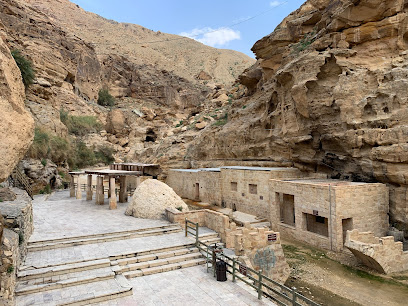
حمام ايام زمان التركي hamam ayam zaman
9.6 km
Experience the serenity of Hamam Ayam Zaman, a traditional Jordanian bathhouse in At-Tafilah, where relaxation meets cultural heritage.

مننزه وحديقة ألعاب الشهيد معاذ الكساسبة
10.1 km
Experience tranquility and outdoor fun at شهيد معاذ الكساسبة Park and Play Area in At-Tafilah, a perfect destination for families and nature enthusiasts.
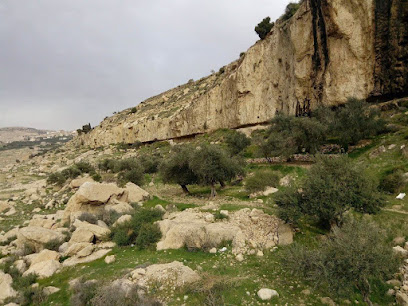
كوريدور الطفيلة
10.1 km
Experience the tranquil beauty of Kouridour Garden in At-Tafilah, a perfect retreat for nature lovers and those seeking peace in Jordan's landscapes.
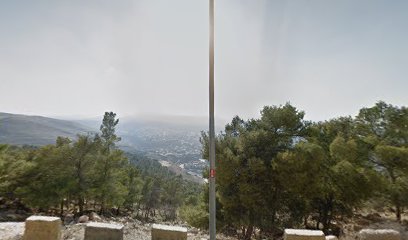
عين-ماء-كرما
10.2 km
Discover the enchanting landscapes and rich heritage at Ein Ma'kema, a serene tourist attraction along the historic Kings Highway in At-Tafilah, Jordan.

متنزه بانوراما الطفيله
10.2 km
Experience the tranquil beauty of Panorama Park in At-Tafilah, a hidden gem for nature lovers and those seeking relaxation.
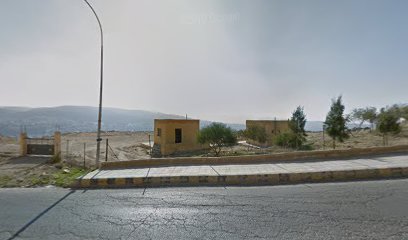
شلالات المشلشلة
10.8 km
Explore the stunning landscapes of Shalalat Al-Mashalsha, a hiking paradise in Jordan, perfect for nature lovers and adventure seekers.
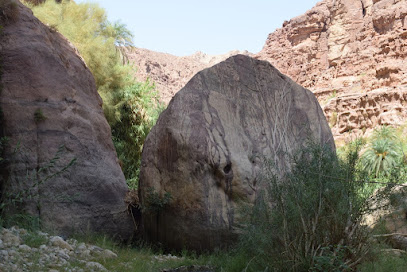
PALESTINE
11.5 km
Discover the natural beauty and serenity of Palestine State Park in At-Tafilah, a perfect retreat for nature lovers and adventure seekers.

طرفاية يوسف
11.7 km
Discover the tranquil Tarfiya Yusuf Park in At-Tafilah, Jordan, where nature's beauty and serenity come together for an unforgettable outdoor experience.
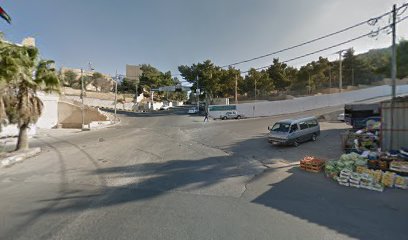
سيل الحسا
11.7 km
Explore Siq al-Hasa, a hidden gem in At-Tafilah, Jordan, featuring breathtaking landscapes and geological wonders that will leave you in awe.
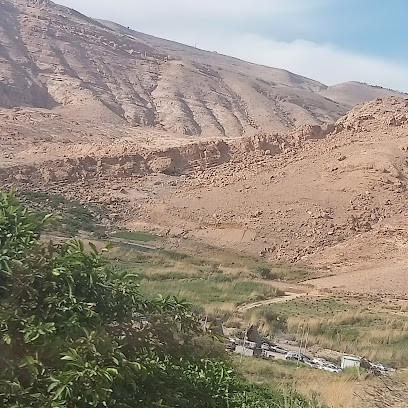
بقعة المناعين
11.7 km
Discover the ancient ruins of Baq'at al-Munain in At-Tafilah, Jordan—a captivating journey through history amidst breathtaking landscapes.
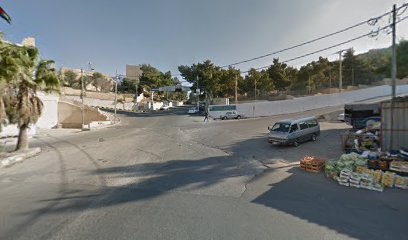
Essential places to dine
Shata w tatbila restaurant مطعم شطة وتتبيلة
4.1 km
Discover the heart of Jordanian cuisine at Shata w Tatbila, where every falafel tells a story of flavor and tradition.
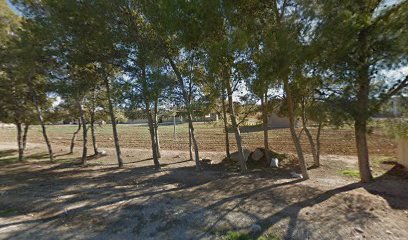
Alsheikh Restaurant مطعم الشيخ الطفيلة
8.6 km
Discover the flavors of Middle Eastern cuisine at Alsheikh Restaurant in At-Tafilah – where every meal is a celebration of local traditions.

برجر قاع الهامور|hamoor bottom burgers
9.4 km
Experience mouth-watering burgers at Hamoor Bottom Burgers in Al Ayes - where every bite tells a delicious story.

Caballero كابليرو
9.5 km
Discover the rich flavors of Jordanian cuisine at Caballero كابليرو in At-Tafilah – where tradition meets taste in every dish.

Ahel El Khaer
9.5 km
Experience authentic Jordanian flavors at Ahel El Khaer in At-Tafilah - where tradition meets taste.

مطعم بيت المندي
9.5 km
Discover authentic Middle Eastern cuisine at مطعم بيت المندي in At-Tafilah - perfect for families seeking delicious Mandi and more.

مطعم الصحن التركي
9.5 km
Savor authentic Turkish flavors at مطعم الصحن التركي in At-Tafilah – where every dish tells a story.

زهر الياسمين
9.5 km
Discover authentic Jordanian flavors at زهر الياسمين in At-Tafilah – where every dish tells a story.

مطبخ ومطعم اية الرزق
9.5 km
Savor authentic Jordanian cuisine at مطبخ ومطعم اية الرزق in At-Tafilah – a true taste of local tradition awaits!
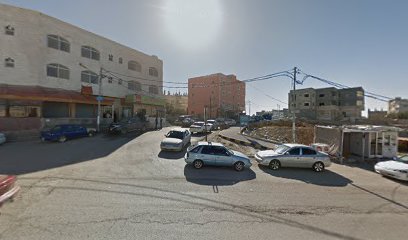
مطعم روعة الأيادي
9.6 km
Experience authentic Jordanian cuisine at مطعم روعة الأيادي in At-Tafilah - where tradition meets taste.

ORGA Restaurant
9.6 km
Experience exceptional dining at ORGA Restaurant in Al Ayes, where culinary excellence meets warm hospitality.

مطعم جواد
9.6 km
Experience authentic Jordanian flavors at مطعم جواد in At-Tafilah - a culinary gem offering traditional dishes and warm hospitality.

مطعم مستر شاورما الطفيلة
9.6 km
Discover authentic Middle Eastern flavors at Mr. Shawarma in Al Ayes – a budget-friendly culinary experience that satisfies every palate.

شاورما وسناكات الدمشقي
9.6 km
Savor authentic Middle Eastern flavors at الشاورما وسناكات الدمشقي - your go-to fast food destination in At-Tafilah.
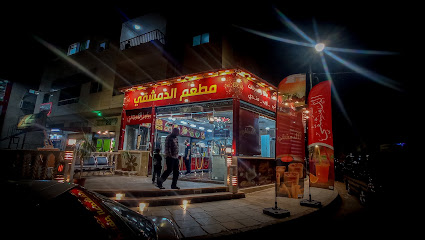
مطعم وشاورما المهندس
9.6 km
Discover authentic Eastern European cuisine at مطعم وشاورما المهندس in At-Tafilah - where flavor meets tradition.
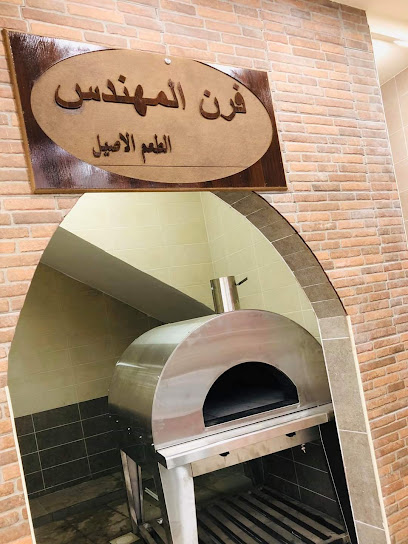
Markets, malls and hidden boutiques
بقالة ابو جمال
3.8 km
Explore بقالة ابو جمال, a charming grocery store offering authentic local flavors and a taste of Jordanian culture.
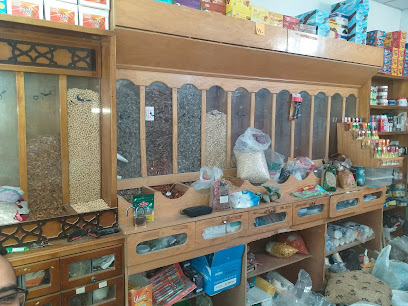
Nawras Super Marke
3.9 km
Explore Nawras Super Market for a taste of local culture and everyday essentials while visiting Jordan.

بقالة ابو محمد المعايطة
8.7 km
Experience authentic Jordanian flavors and warm hospitality at بقالة ابو محمد المعايطة in Al Ayes.

محل مفروشات الهناء
8.8 km
Explore the unique furniture and craftsmanship at محل مفروشات الهناء in At-Tafilah, where tradition meets modernity in every piece.

سيف للالبان
9.5 km
Experience the rich flavors of Jordan at Sif Dairy in At-Tafilah, a charming grocery store offering fresh, locally sourced dairy products.
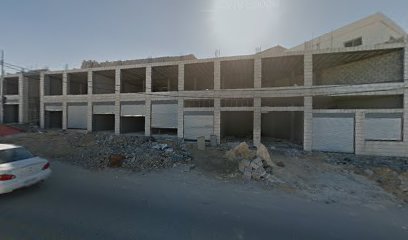
Nawras Super Market
11.7 km
Explore Nawras Super Market in At-Tafilah, a vibrant shopping destination showcasing local flavors and treasures in the heart of Jordan.

Dana mool مكتبة القادسية
11.7 km
Explore Dana Mool, a vibrant shopping mall in At-Tafilah, where modern retail meets local culture for an unforgettable shopping experience.

محلات القراقرة للأجهزة الكهربائية
11.7 km
Discover a world of electronics at محلات القراقرة للأجهزة الكهربائية in At-Tafilah, a vibrant shopping mall offering a diverse selection of home appliances and gadgets.

ازهار الطفيلة
11.7 km
استمتع بجمال الطبيعة في زهور الطفيلة، وجهتك المثالية للزهور في الأردن.

مشغل محمد فالح السعود للإلكترونيات
11.7 km
Explore cutting-edge electronics and knowledgeable service at مشغل محمد فالح السعود للإلكترونيات in At-Tafilah, Jordan.

مخبز الصابرين
11.7 km
Discover the taste of tradition at مخبز الصابرين, a charming bakery in At-Tafilah serving freshly baked delights and local specialties.
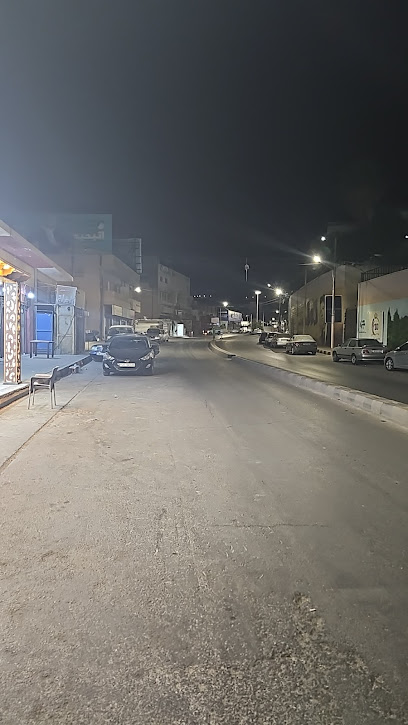
المؤسسة الاستهلاكية المدنية - سوق الطفيلة
11.8 km
Experience the lively shopping atmosphere at Al-Tafila's Civilian Consumption Institution, where local culture and community come together.

مكتبة اليامن قرطاسية والإكسسوارات
21.4 km
Discover exquisite stationery and unique gifts at مكتبة اليامن قرطاسية والإكسسوارات in Basira, where local culture meets creativity.

Sweets shop originality
21.5 km
Discover the sweetest side of Basira at its renowned candy store, offering a delicious variety of traditional and modern sweets in a charming setting.
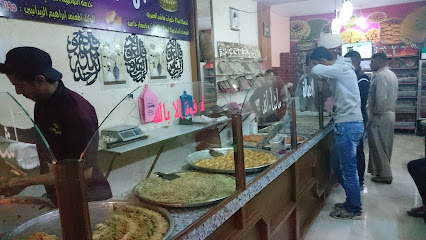
عرار الشراري
22.3 km
Discover the authentic taste of Jordan at عرار الشراري, a vibrant supermarket filled with local flavors and fresh produce.
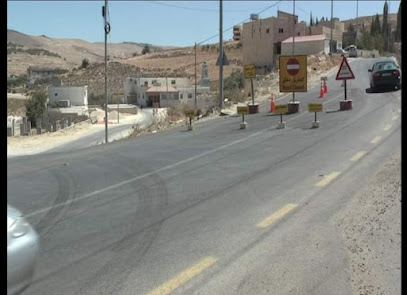
Essential bars & hidden hideouts
مطعم وكفتيريا مخيم وادي الحسا
8.6 km
Experience the delicious tastes of مطعم وكفتيريا مخيم وادي الحسا, a fast-food haven in the heart of Wadi Al Hassa's stunning landscapes.
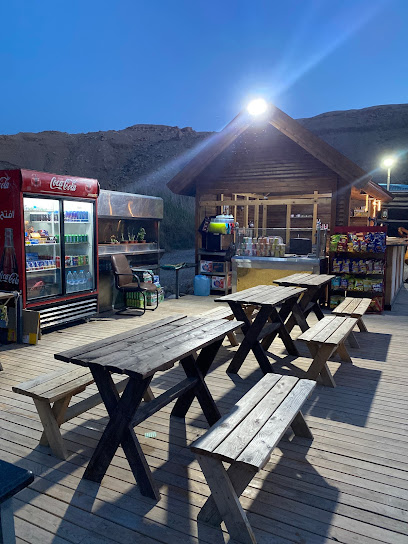
مقهى العندليب
9.7 km
Experience the tranquil ambiance and rich flavors of hookah culture at مقهى العندليب in Al Ayes, a must-visit for tourists seeking local charm.
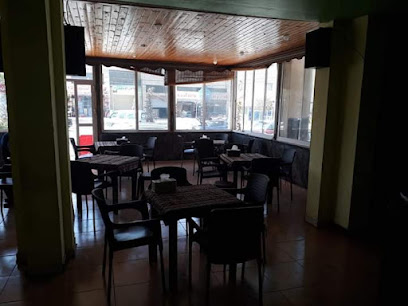
صالة جود
10.7 km
Discover the tranquil ambiance of صالة جود, a delightful lounge in At-Tafilah offering a perfect retreat for relaxation and local flavors.
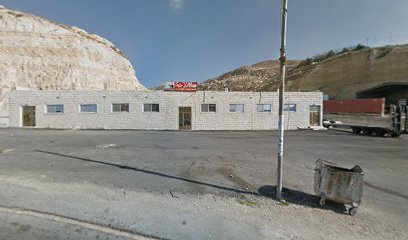
صالة اليوسف للافراح والمناسبات
11.9 km
Discover the elegance of صالة اليوسف للافراح والمناسبات in At-Tafilah, a premier lounge for local celebrations and gatherings.

بيت شيخ براهيم بن عطاالله
14.3 km
Discover the lively atmosphere of بيت شيخ براهيم بن عطاالله, a unique bar in Al-Hussayniyah offering a blend of traditional and modern vibes.

مخبز علي اللامي
21.4 km
Savor the authentic taste of Jordanian pastries at مخبز علي اللامي, a must-visit bakery in Basira for all food lovers.

L'amour cafe' - alkarak
21.5 km
Experience the cozy ambiance and delicious local flavors at L'amour Cafe in Kerak, a perfect spot for relaxation and cultural immersion.

ديوان عشيرة عيال سلمان
21.6 km
Experience the warmth of Basira at Diwan Eyal Salman Lounge, where local flavors and community spirit blend beautifully.
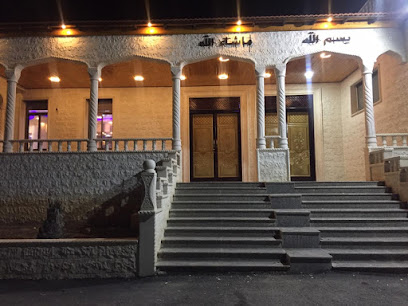
Modhelah wedding and party hall
23.2 km
Discover the perfect venue for your celebrations at Modhelah Wedding and Party Hall in Kerak, Jordan, blending elegance and hospitality.
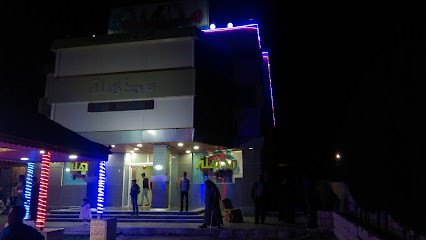
معصرة بلدية عي الحديثة
23.7 km
Experience the refreshing taste of artisanal ciders at معصرة بلدية عي الحديثة in Kerak, where local flavor meets stunning landscapes.
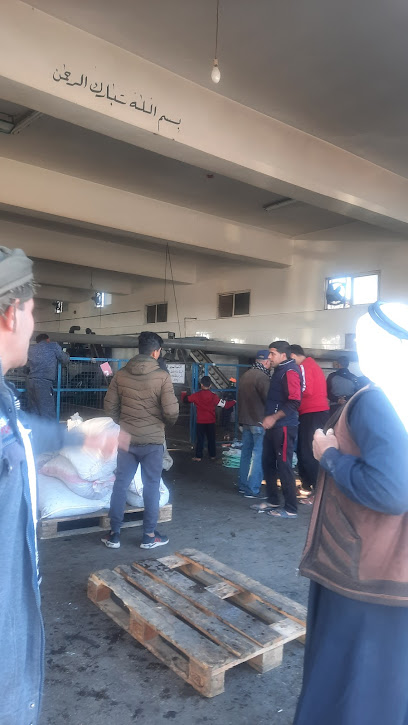
Royal Galleries
25.4 km
Experience the charm of Kerak at the Royal Galleries, a luxurious lounge offering a relaxing atmosphere and delightful refreshments.
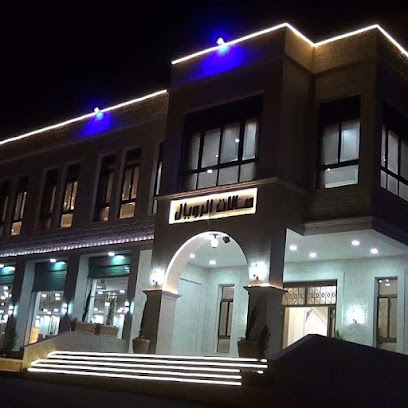
جميعه الغوير الخيرية
26.4 km
Discover جميعه الغوير الخيرية in الكرك - a versatile lounge and village hall perfect for gatherings and celebrations.
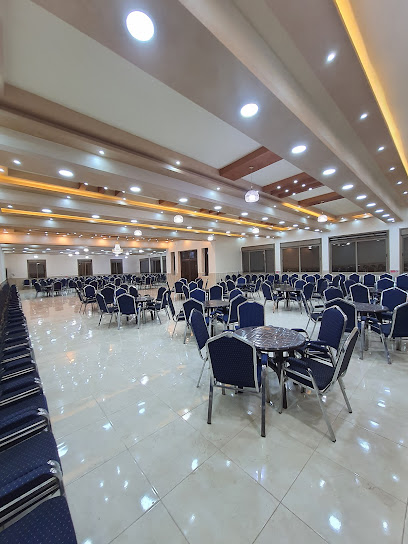
, مهند سليمان الحجايا
27.1 km
Discover the essence of Jurf ed-Darawish at مهند سليمان الحجايا, a vibrant bar offering a unique blend of local drinks and charming ambiance.

صالة قصر الكرك
28.3 km
Discover the serene ambiance of Qasr Al-Karak Lounge in Kerak, where tradition meets relaxation and stunning views await.

المرج
29.8 km
Experience the vibrant atmosphere at المرج, a charming bar in Kerak, where local flavors and friendly faces await every traveler.

Nightclubs & after hour spots
Creativity Club - Karak
28.2 km
Experience endless fun and creativity at the Creativity Club - Karak, where imagination comes to life for children and families.
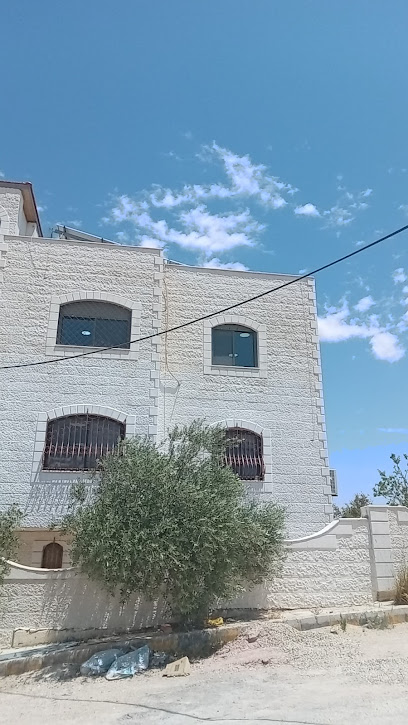
Feynan Ecolodge Reception Centre (parking)
41.0 km
Explore the beauty of Feynan Ecolodge, where eco-friendly hospitality meets breathtaking nature and rich Bedouin culture.
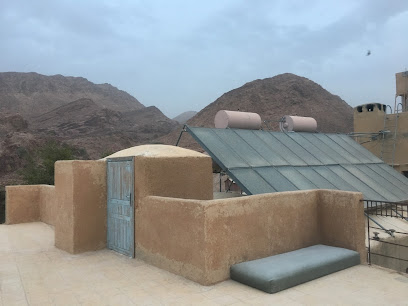
ديوان العصيفات
45.5 km
Experience the inviting atmosphere of ديوان العصيفات, the ultimate lounge destination in Shobak offering local flavors and a relaxing vibe.
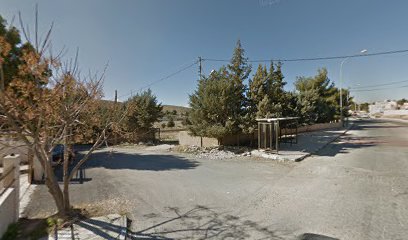
Beach Bar at Dead Sea Mall
45.6 km
Experience the ultimate relaxation at the Beach Bar in Dead Sea Mall, where stunning views meet refreshing drinks in an unforgettable atmosphere.

قاعة الزهراء
50.7 km
Discover the serene ambiance of قاعة الزهراء in Sirfa, a charming lounge offering local flavors and a cozy atmosphere for relaxation.

Bar
54.4 km
Immerse yourself in the lively spirit of Sirfa at this bar, where delicious drinks meet unforgettable moments in a charming atmosphere.
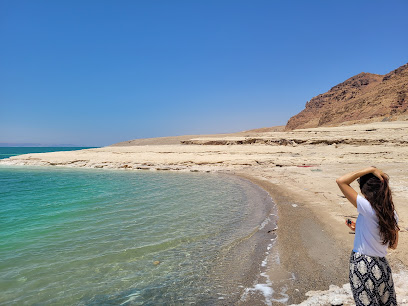
Masada Challange
56.0 km
Discover the breathtaking history and adventure of Masada, an ancient fortress perched above the Dead Sea, offering stunning views and hiking trails.
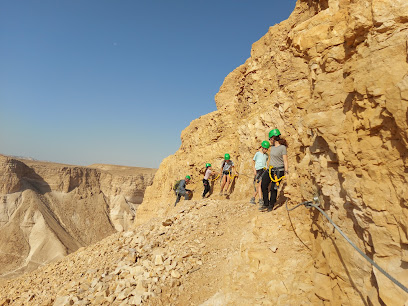
Wadi Mujib, Ibex Trail
62.4 km
Discover the breathtaking beauty of Wadi Mujib's Ibex Trail, a hiking paradise in the heart of Jordan's natural wonders.
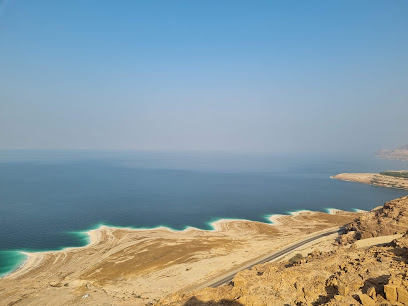
الشمالي الجبل
62.5 km
Experience the electrifying nightlife at الشمالي الجبل, where music, dance, and vibrant energy create unforgettable moments in the heart of Jordan.

وادي ابوشريفة .العزازمه
62.5 km
Experience the serene beauty and cultural richness of Wadi Abu Sharifa, a hidden gem in the heart of Jordan, perfect for nature lovers and adventurers alike.

ملعب جذع النخلة الدولي ١١
62.5 km
Dive into the heart of Jordan's nightlife at Al-Jad' Al-Nakhl International Club 11, where vibrant music and unforgettable experiences await.

Saba Bakhit
63.2 km
Discover the vibrant rock music scene at Saba Bakhit, a must-visit club in Jordan for unforgettable live performances and a lively atmosphere.

Wadi Mujib
63.4 km
Discover the stunning beauty of Wadi Mujib, a premier hiking area in Jordan with breathtaking landscapes and diverse ecosystems.
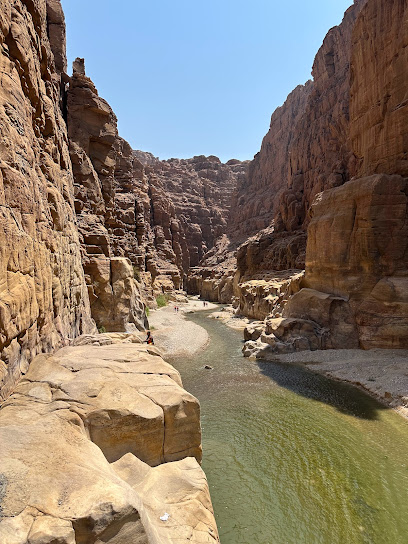
Mujib Chalets - Mujib Biosphere Reserve
63.9 km
Discover the natural wonders of Mujib Biosphere Reserve while enjoying the comfort of Mujib Chalets, a perfect retreat for adventure seekers.

Al Hidan Hostel And Adventure Center
64.3 km
Experience the thrill of adventure at Al Hidan Hostel and Adventure Center, where comfort meets the great outdoors in Jordan.
